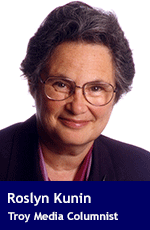 It is only fair that in a nation as rich as ours, everyone should have a living income. Raising the minimum wage to $20.64 per hour, however, will not solve the poverty problem.
It is only fair that in a nation as rich as ours, everyone should have a living income. Raising the minimum wage to $20.64 per hour, however, will not solve the poverty problem.
That hourly wage is proposed by the Canadian Centre for Policy Alternatives and others. First, not all minimum wage earners live in poor households. Second, many people are poor not because they have low wages, but because they have not enough or any work. Third, raising wages leads employers to provide fewer hours of work.
A better way to enable people to live better is to make sure that whatever income we have buys as much as possible. Lowering the cost of living makes everyone better off, especially the poor who have to spend a higher proportion of their income. Higher prices hurt. We recognize this with respect to housing costs in Vancouver, but pay little attention to the high costs of other goods.
Free markets and open borders are what keep the costs of food and other goods that we buy down. They also generate jobs. Restrictions on trade, whether at home or abroad, allow existing suppliers to become monopolies and raise prices. They discourage new businesses and new jobs. The results are less employment and a higher cost of living.
How much does free trade help? How much does closing our borders to trade hurt? A study by Pablo Fajgelbaum of UCLA and Amit Khandelwal of Columbia University shows that protectionism would reduce the purchasing power of rich people by 28 percent. However, the poorest 10 percent of the population would see their spending power decline by 63 percent. This is an extreme case. Trade will never be totally eliminated here. But we must remember that trade restrictions harm the poor more than anyone else.
This is not an academic issue. Both U.S. presidential candidates talk of restricting trade with Canada. Clinton is leaning toward more protectionism, while Trump bellows about totally eliminating the North America Free Trade Agreement (NAFTA).
Even more vital for British Columbia is the expiration of the Softwood Lumber Agreement with the United States. It ended in October 2015, but there was a one-year stand still period to allow time for a successor to be negotiated. Now, the grace year is up with no new agreement in place.
This means that those who hope to export lumber to the United States face the risk of penalties and other restrictions. B.C. lumber producers have very wisely diversified their customer base. Still, just less than half of our lumber by value still goes the U.S. Already woods operations and lumber mills throughout B.C. are considering cutbacks, closures and layoffs. Already many Canadian lumber producers are moving their operations into the U.S. so as not to be caught behind a protectionist wall.
Limiting trade does harm on all sides. Hurting its trading partner, Canada, hurts the U.S. as well. Sure, U.S. lumber produces will gain more monopoly power and be able to reduce supply and increase prices and profits. However, every American who uses lumber or any product made with lumber, from a house to a backyard deck, will see their costs grow and their purchasing power fall.
In Canada, we need a new and fair lumber agreement as quickly as possible. It is especially important in B.C., which produces 50 percent of Canada’s lumber. Towns across the non-metro areas of this province could be facing a bleak winter without it – though not as bad as it would have been had we not found more non-U.S. customers for our wood.
We also need to hone our negotiating skills for post-election realities south of the border. Otherwise, new trade limitations could really hit us in the pocketbook with the poorest among us being the hardest hit. And that is just not fair.
Troy Media columnist Roslyn Kunin is a consulting economist and speaker.
The views, opinions and positions expressed by columnists and contributors are the author’s alone. They do not inherently or expressly reflect the views, opinions and/or positions of our publication.

